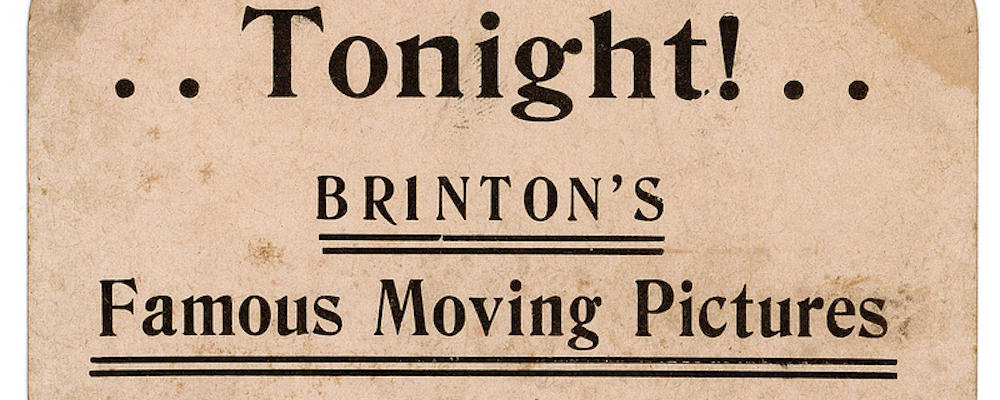
Saving Brinton, a new Iowa-made documentary about a cache of century-old films preserved with help from the UI Libraries, just saw its world premiere in Washington, D.C.
Washington, Iowa, resident Mike Zahs—who discovered the films once shown around the Midwest by W. Frank Brinton—is the star of the show, leading a cast of preservationists and historians. But ITS Research Services has a bit part in the story behind the documentary.
Newly digitized copies of the Brinton Collection reside on servers managed by ITS’s Large Scale Storage service, home to the UI Libraries massive digital archive. Originally designed to support researchers, the LSS is available to individuals and units university-wide.
“All told, we currently have about 135 terabytes on the LSS service,” says Daniel Johnson, digital preservation librarian in the libraries’ Preservation and Conservation Department, where he’s chiefly responsible for managing the digital archive.
The Brinton Collection itself—which includes the films found by Zahs and a similar set held by the Library of Congress—runs about 15 terabytes, or nearly 31 times the storage found on a typical desktop computer.
Competitive costs and scalability drew the Libraries to the LSS. At $40 per terabyte per year, the service is a relative bargain for anyone managing sets of very large files like images, videos, audio recordings, and digitized films.
The LSS has seen enhancements including price cuts under the university's OneIT initiative. Joe Hetrick, associate director of ITS Research Services, says strengthening security is the next step. Data stored on the LSS is well-protected, but further measures will make it suitable for sensitive Level III data including employee, financial, and student information.
LSS servers are located in the Lindquist Center and the Information Technology Facility on the Oakdale Campus. The Libraries stores copies of its archives at both locations for additional peace of mind.
Other campus units using the service include the Office of the State Archeologist, the colleges of dentistry and pharmacy, the Department of Public Safety, and the Iowa Advanced Driving Simulator.
Major academic libraries like the UI’s typically maintain large data storage systems, but building a centrally managed, low-cost solution available to anyone on campus is fairly uncommon. “We think ours is special because it’s so affordable,” Hetrick says. “That makes it easy for new users to come on board rather than trying to set up their own systems.
View films from the Brinton Collection—including one of Johnson’s personal favorites, Wonderful Flames—on the UI Libraries’ Brinton Collection website.